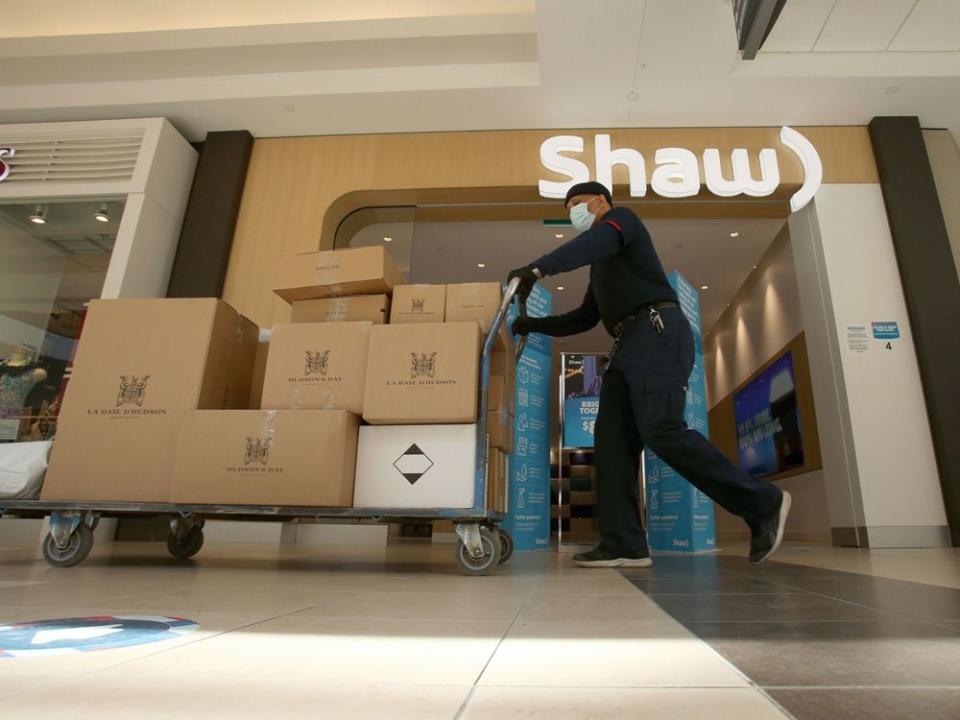Sale to Rogers 'extremely difficult' for Shaw family, CEO says

Shaw Communications Inc. decided to merge with Rogers Communications Inc. because it can’t invest in services and products that customers want, its chief executive told a tribunal convened to decide the fate of the $26-billion tie-up of the two telecommunications giants.
Bradley Shaw, the son of the company’s late founder, JR Shaw, said it was “extremely difficult” for the family to let go of the business, which he’s been in for 35 years. Bradley Shaw took the helm in 2010, succeeding his late older brother Jim Shaw and their father before then.
“It’s all we’ve done. We’re an operating family,” said Shaw, who also took over as executive chair following his father’s passing in 2020. “We take pride in what we’ve done, what we’ve been able to build all over 50 years, but we also have an obligation to our shareholders.”
The executive said the telco has been outspent by Western Canada rival Telus by $7 billion over the past five years and was losing wireline market share to them. He also said Shaw had invested $5 billion in its wireless business “and not made one dollar in cash flow.”
Chief financial officer Trevor English first mentioned Shaw’s negative free cash flow from wireless at the hearing earlier this week during his cross examination. English told the tribunal Tuesday that of their roughly $5.55 billion investment in the wireless business, about $3.3 billion was still net negative to date.
“(We) believe we don’t have the scale and size to make investments to truly innovate (and) to truly give customers the services and products they want, so as we made the decision to sell,” Shaw told the tribunal.
The company’s president, Paul McAleese, also continued to testify before the tribunal on Wednesday morning. In his witness statement, McAleese said the launch of “Big Gig” promotions by Shaw’s Freedom Mobile — data plans that at the time were far cheaper than those offered by its Big Three competitors — was “one of the most important events in Canadian wireless history.”
Last week, an expert hired by the Competition Bureau, told the tribunal that the Shaw initiatives, such as the Big Gig plans, impacted other telcos.
Free cash flow from Shaw wireless 'consistently negative' since 2016, merger tribunal hears
Freedom Mobile acquisition will help Quebecor lower prices, Péladeau tells tribunal
Rogers, Shaw families stand to be 'big winners' of merger, Competition Bureau expert tells tribunal
The most notable plan provided 10 gigabytes of data for $50 per month (not including a device subsidy) — less than half the price of comparable bring-your-own-device plans from competitors’ main and second-tier brands, which all charged at least $115 for 10 GB.
The Bureau’s expert witness, Nathan Miller, said the Big Three — Rogers, BCE Inc. and Telus Corp. — all introduced short-term price promotions following Shaw’s Big Gig promotions for iPhones.
McAleese also said the Big Three would charge “toxic revenue fees” such as data overage fees, which Shaw has tried to avoid for its users.
McAleese said Shaw’s mobile customers would see a slower quality of service after exceeding their monthly data limits, but would not be charged. He said the Big Three policy of continuing to charge did not accord with trends in other countries.
“At the time, that behaviour was inconsistent with what we’ve seen internationally,” he said in response to John Tyhurst, a lawyer for the Competition Bureau. “I was simply putting the Big Three essentially on a warning that … consumer friendliness on pricing overage fees was likely coming to Canada.”
• Email: dpaglinawan@postmedia.com | Twitter: denisepglnwn

 Yahoo Finance
Yahoo Finance 